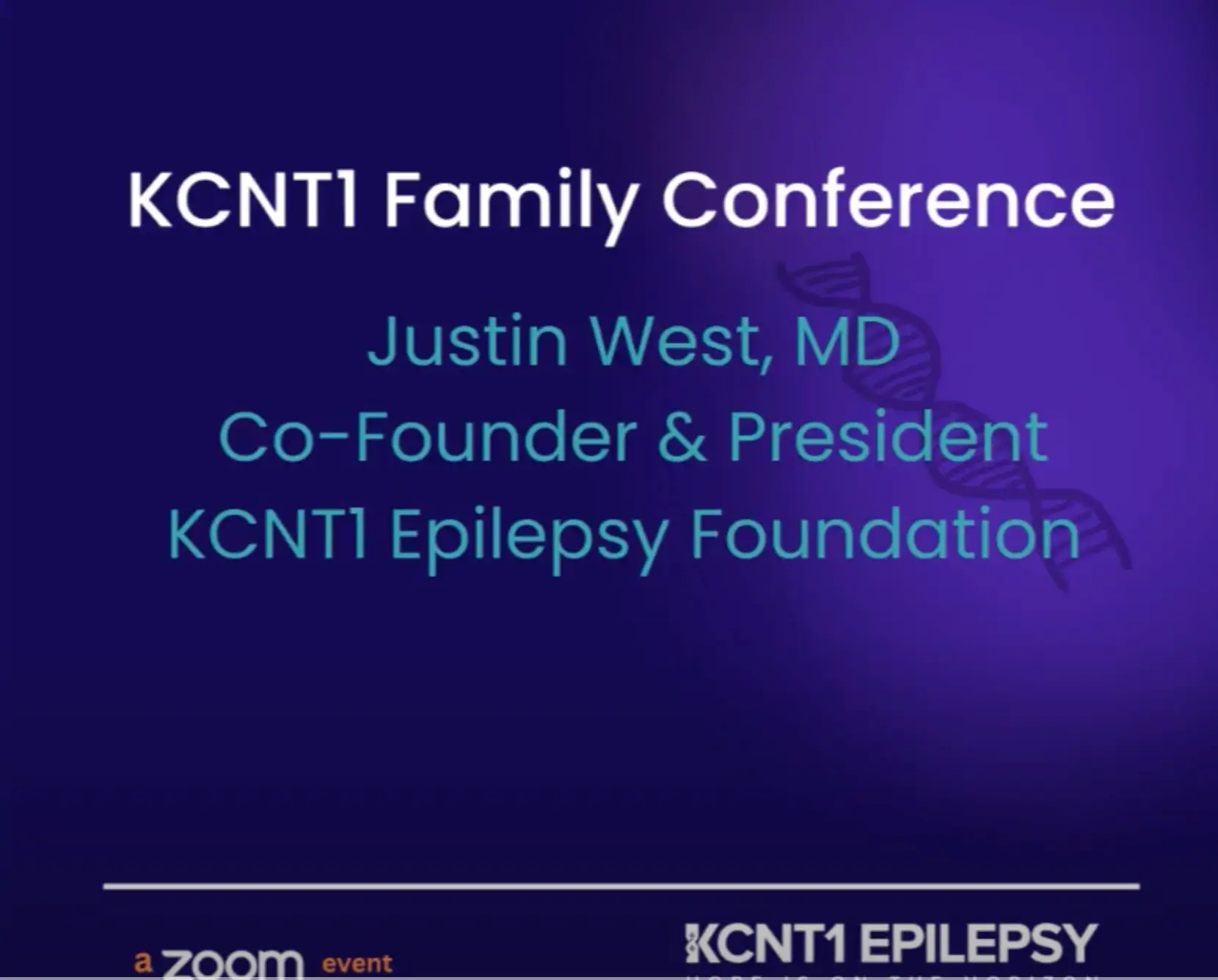
Our Research Studies and Partners in Data Collection
One obstacle in developing drugs for rare diseases is a lack of patient data.
So it is critical our KCNT1 patients participate in as many research studies as possible.
You have the power to help researchers understand how KCNT1 starts and progresses by participating in research. This can transform the way new treatments are developed and tested. Together, we can change the future of KCNT1 related disorders.
By contributing data and biospecimens, you can make your voice and experience be heard. With studies that capture your family’s experience, called patient centered research, you will help us establish a robust knowledge base that our researchers, clinicians, and biotech partners can rely on as we progress towards finding a cure. We have collaborated with multiple organizations to gather natural history data and biological samples from individuals with KCNT1 variants. Engaging in research studies is a crucial means of expanding our understanding of KCNT1 and expediting the development of future treatments and therapies.
As pharmaceutical companies get closer to applying for clinical trials, they may have specific data needs. Some of you may be contacted to participate in additional studies.
Learn more about why observational studies are important.
Community Roadmap
1. Join the community
Step 1
Sign up for the KCNT1 Epilepsy Foundation Family Contact List.
Contact Information for all families and their warriors. This provides our official count of warriors. Include your location, variant and phenotype.
What: Online form
Who: All KCNT1 parent or primary caregiver, one parent per family.
Status: Ongoing
2. Enroll in Citizen Health
Step 2
Citizen: Help us understand more about KCNT1 to improve care. Share your health information in a few easy steps! Bonus: You get access to your records and can share with anyone.
Electronic medical record compilation for study comparison. Give permission to Citizen to collect your medical records in order to allow statistical analysis across all patient records for research.
- Create an account using our link
- Give permission
- Upload images of your ID & genetic report
- Contact info for neurologist and hospital. The more you add the better!
What: Medical Records study
Who: U.S. only, one parent per family
Status: Ongoing
3. Donate Blood or other tissues
Step 3
Biorepository through partner, COMBINEDBrain.
Library of biological specimens from KCNT1 patients and a parent or sibling, primarily form blood or skin samples and cerebral spinal fluid. Consent and agree to blood draw. Either at a healthcare provider’s office, lab or with appointment for home draw. Or, schedule blood draw and CSF to coincide with other procedure. We can also accept additional tissues and organs. Fill out our interest form or if there is an urgent situation and you wish to donate tissues or organs, email us directly.
What: Biobank
Who: U.S. only, persons with a KCNT1 gene mutation
Status: Ongoing
4. EEG Collection
Step 4
Biomarker study to look for unique EEG signals in KCNT1 patients.
Requesting EEG raw data from provider in a digital format. Hold for further instructions.
What: Registry
Who: ALL KCNT1 patients
Status: Ongoing
Be part of the solution:
Participate in Observational Research Studies
Observational research studies are an essential tool for designing clinical trials. They ensure that the patient perspective is understood, and your data provides valuable insights into the natural history of a disease. This can help identify potential treatment options. In this webpage, we will discuss the importance of patient centered, observational research studies in designing clinical trials.
Observational research studies don’t test potential treatments. Instead, participants stay on their normal treatment plan. Researchers observe participants and track health outcomes over time. They can be a one-time study looking at past data, or can be ongoing or longitudinal study like in our Research Registry. Participation could be as simple as a single blood draw or filling out a questionnaire. Unlike interventional studies, you can be in more than one observational study at the same time because the studies do not involve any changes to your regular treatment plan.
Goals for our observational research
- to provide insights on disease progression to inform researchers and drug discovery effort (could ID new biomarkers or outcome measures)
- to understand what symptoms affect patients and families most
- to inform the FDA of the disease and what parents want from a treatment
- to help identify and select “clinically relevant” outcome measures for clinical trials
Below are the current observational projects for KCNT1. We hope to get as many of you to participate as possible!
Your data is critical in the fight against pediatric epilepsy caused by the KCNT1 gene!
CONTRIBUTE TO RESEARCH & ENROLL IN
KCNT1 COMMUNITY STUDIES
Families have a very important role to play in the KCNT1 community. We highly encourage you to sign up on our Family Contact list and take part in surveys for research. Researchers will use the data that families share to get firsthand information about the symptom our children experience, and how they respond to various treatments. By joining our family network you will be notified to take part in any clinical trials that become available. For more ways to help, see our Get Involved page.
Natural History Study
An ongoing digital natural history study is being conducted throug the Citizen platform. It contains a robust database with detailed clinical data, genetic, and developmental data. Parents can sign up here. To apply for access to this data contact info@kcnt1epilepsy.org
Biosample Repository
A biobank houses human biological materials such as blood, DNA, and tissues linked to detailed clinical data in the Natural History database. This tissue and their associated clinical data will allow researchers to search for clues to understand why KCNT1 mutations can differ from person to person. The tissue can also be turned into cell lines that researchers and drug developers can use to better understand the disease and test out new therapies before moving on to clinical trials. We currently have a biobank through CombinedBrain. If you would are are researcher and would like access to our specimens email info@kcnt1epilepsy.org Parents who wish to provide blood or other bio specimens should click on Participate and fill out the form.




